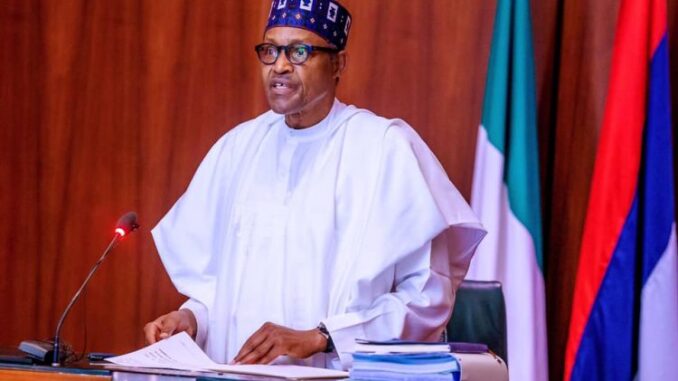
Sixty per cent of 10 Africans live in a country where governance has improved since 2010. Nigerians are not amongst them.
The very best thing we can say about Nigeria’s performance in a new international assessment of governance in Africa is that our government is not seen to be as corrupt as our private sector.
The Ibrahim Index of African Governance (IIAG) recently scored Nigeria an embarrassing 26/100 for corruption in state institutions and 25/100 for corruption in public procurement.
These awful results are at least better than those “achieved” for corruption in the private sector – 19/100.
It is pretty much the only positive the government can take from a report which ranks Nigeria 34th out of 54 for overall governance and highlights “increasing deterioration” in the governance of our nation – things are bad, and they are getting worse.
The report makes troubling reading for all of Africa, with governance across the continent declining for the first time on record, with deterioration detected in participation, rights, rule of law and security, and authors warning that “institutional checks and balances are on a concerning trajectory”.
Nonetheless, six out of 10 Africans live in a country where governance has improved since 2010. Nigerians are not amongst them – in fact we are one of only five countries to record a decline in rating in both rule of law and rights and inclusion.x
There are plenty of what the report calls “warning signs” for Nigeria, including the following scores:
- 21/100 for a functioning criminal justice system (ranking in the lowest performing quarter of nations)
- 25/100 for political party financing
- 30/100 for disclosure of financial information
- 35/100 for law enforcement
- 32/100 for equal political power (ranking us 38th out of 54)
Across Africa this worsening performance is driven by “two transparency related indicators, accessibility of information and disclosure of financial and judicial information” where “little progress has been made in a decade”.
Perhaps this is why Nigeria performs noticeably poorly when it comes to the publically perceived Accountability of Officials”, scoring just 27/100, barely half the African average and dwarfed by the 74/100 scored by Tanzania.
This research shows Nigerians do not trust their public institutions, and that Nigerians are right not to trust their public institutions.x
Vice President Yemi Osinbajo spoke perfectly, recently, when he recognised the compelling need to rebuild the trust between the government and the governed in the aftermath of the #EndSARS protests.
“There is a moral, social and ethical reconstruction to be undertaken…we must rebuild trust between the government and the governed; the vast majority of who are young persons, rebuild trust between law enforcement agents and the communities that they are meant to serve,” he said:“We have also realised that order itself in a social context is sustained by the consent of the governed.”
The IIAG figures lay bare the scare of the challenge. But fine and fancy words are not enough. We cannot just pay lip service to a fundamental – and apparently deserved – lack of trust in our democratic institutions.
Vice President Osinbajo placed his faith in the Judicial Panels of Inquiry established across Nigeria to investigate the causes of the protests. But the IIAG figures show Nigerian judicial independence to have declined since 2010, and with public perception of the integrity of elections in our nation amongst the worst in Africa (ranked in the bottom third of countries) we cannot say with any confidence at all that the findings of these inquiries will be credible to the public.
At the digital democracy campaign I lead, we are dedicated to using digital technology to drive accountability and transparency in Nigerian public life.
We have created a free mobile app called Rate Your Leader to bring electors and elected closer together. Rate Your Leader allows voters to contact their local representatives person-to-person at the touch of button, opening dialogue, driving collaboration, sharing ideas and building trust.
We all know that personal relationships are the most rewarding, the most productive and the most trusted. That’s why we created a free gateway to make the political more personal.
With enough will from the heart of the government, backed up by the potential of household technology to drive accountability, accessibility and transparency we can start to fix the manifest failings outlined in yet another hugely depressing report.
Joel Popoola is a Nigerian tech entrepreneur and political commentator, digital democracy campaigner and the creator of the Rate Your Leader app. He can be reached on Twitter at @JOPopoola.
Guardian (NG)


Be the first to comment